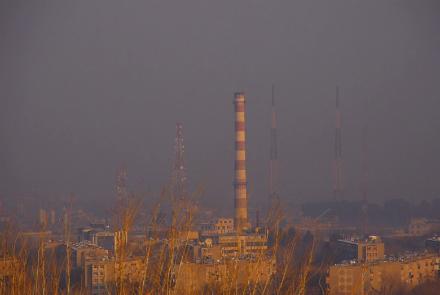A new study has found that many serious health problems among the people in Kabul are due to a dramatic increase in air pollution and to toxic substances in the water in the capital.
The study entitled Psycho-physical Effects of Environmental Pollution on the Health of Kabul Citizens, shows that at least 10 percent of water in 22 districts of Kabul is contaminated with nitrate substances, which according to the study, it can cause kidney damage and other ailments.
The research carried out by Fikr Organization of Psychosocial Development says that the water in first, second, seventh, 16th and 18th districts of Kabul is not fit for consumption. Therefore, it suggests that water in these districts must be boiled or processed before being used.
The report also found that the water in the third, sixth, ninth, 13th, 14th, 21st and 22nd districts of Kabul is fine for human consumption.
But the report suggests water in the eighth, 11th and 17th districts should also be treated before use.
According to the study, one third of the water in the fourth, fifth, 10th, 12th, 15th, 19th and 20th districts is contaminated with microbes and need to be boiled before drinking.
Meanwhile, the study indicates that low-quality and unprocessed material used to heat houses are the main reason for the heavy air pollution in the city.
“People have less tolerance and acceptance when they face an argument. This would have different cultural and historic dimensions, but we cannot ignore the influence of environmental pollution on this matter,” said Naser Seddiqi, a member of the watchdog organization at an event on Saturday.
At the same event, Nisar Ahmad Haris, head of natural resources and environment of the Meshrano Jirga, the Upper House of Parliament, said the import of low-quality fuel is also one of the main reasons for air pollution.
“The lowest quality and the worst fuel is imported to Afghanistan. Our investors affect themselves and the people by importing such fuel,” he said.
Some Kabul residents said they are highly concerned about the air pollution and contaminated water in the city.
“The air pollution is at the level which creates breathing problems when we walk out of our home,” said Zabihullah, a resident of Kabul.
“We usually avoid walking out of home when we see the polluted air, particularly in the evenings,” said Noor Ahmad, a resident of Kabul.
Kabul Municipality meanwhile responded to the complaints from relevant institutions and residents of the city.
“We have at least 3,200 kilometers of roads in the city, of which 52 percent is paved and 48 percent is dirt or requires reconstruction,” said Jalil Sultani, spokesman for the municipality.
Figures by Central Statistics Organization show that the population increase has also added to the problem.

